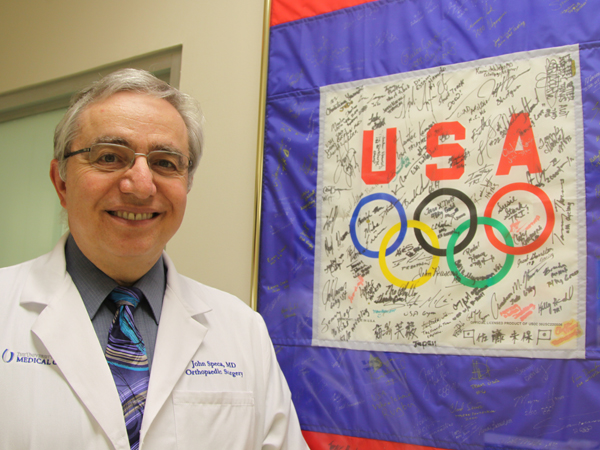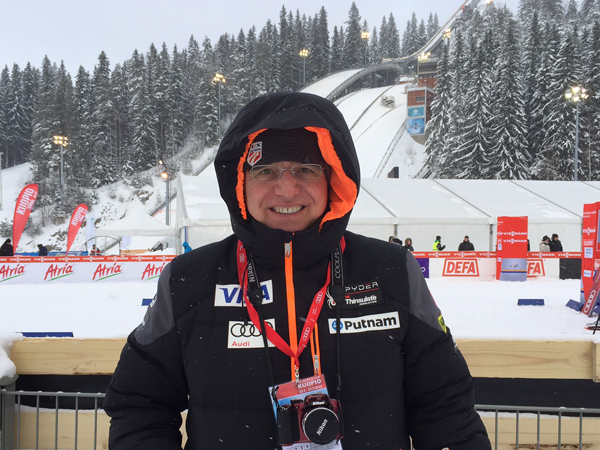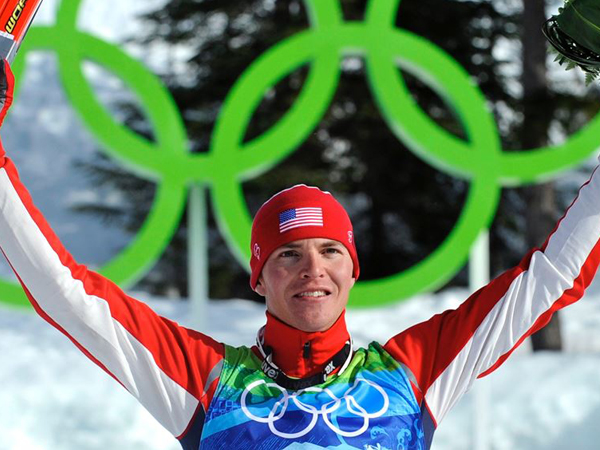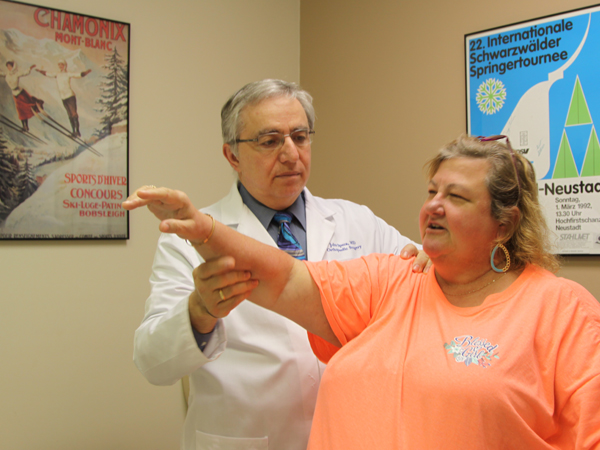Front and Center: Dr. John Speca

Dr. John Speca doesn't know how to ski.
But it really doesn't matter, even though the orthopedic physician at the University of Mississippi Medical Center Grenada has seen his share of snow as he tends to members of the U.S. Men's Ski Team.
“I know how to take care of someone when they were going 80 mph and hit a tree, but I can't ski,” said Speca, who began work at the Grenada campus in 2014. “Even if I'm a beginning skier and I go downhill and they're groomed for expert skiers, I'm more likely to get hurt than they are.”
Speca's most recent travel as team physician was during a Feb. 22 World Cup ski jumping competition in Kuopio, Finland. He's in his 25th year of being associated with the team, with most of that time focused on Nordic combined skiing, a winter sport in which athletes compete both in cross-country and ski jumping.

“In 1990, I took a trip with the People to People organization to Russia, and one of the guys on the tour was looking for help with the ski jumping team,” Speca said. He volunteered his services, with his duties ranging from routine orthopedic treatment to much more serious scenarios where a skier's injuries could be traumatic.
“My responsibility is to have an emergency action plan - to know where the nearest hospital is, how long it will take to get there, and how an athlete will be transported there,” he said. “We have a medical kit and learn how to use it. We train every four years in Colorado.”
When he switched to caring for skiers competing in Nordic combined, Speca said, it was an exciting time in the sport. “That's when the guys who got (Olympic) medals in 2010 were coming into the circuit,” he said. “I knew them when they weren't known.”
Nordic combined is tough and requires much dedication. “You're training for two sports that are polar opposites of each other,” he said of the cross-country and jumping combination.

He developed close friendships with athletes including Billy Demong, who captured the United States' first-ever Olympic gold medal in Nordic combined large hill competition during the 2010 games in Vancouver. Demong's U.S. team landed silver during the event. And count in that mix Johnny Spillane. “He had as many medals in 2010 as Apollo Anton Ono and Bode Miller,” Speca said. “He's very under spoken, and yet one of our big guns at the time.”
Demong went on to win eight U.S. titles, and won four medals with Olympian teammate Todd Lodwick at the 2009 World Ski Championship.
“He used to carry my wife's suitcase for her,” Speca said of Demong.
“John has probably been to more World Cups and held more Olympians hands than any other volunteer physician in history,” said Demong, who lives in Park City, Utah. “He attended events from Norway to Italy and France to Poland, always attentive and able to help any athlete, U.S. or otherwise, if an injury occurred, which on the ski jump is frequent.”
Speca recalls a competition in 2009. “It was our 30th wedding anniversary, and my wife Debbie went along on the trip,” Speca said. Debbie Speca was called on to make sewing adjustments to seven different competitor uniforms.
“She told Billy, 'You've got to pay me back for this. Tomorrow's my birthday, and I want you to be on the podium,'” Speca remembered. They later watched together as Demong flew by them in fourth place, then second, then first to win.
“We were jumping up and down. He looks up at my wife and said, 'Happy birthday!' They miss her when she doesn't come on the trips,” Speca said.
Demong has stories of his own.
On one particular competition trip, “I remember awaiting their arrival in Klingenthal, Germany and getting a call: “Hey, it's Dr. Speca!”
“Hey, Doc! We've got dinner waiting for you. Where are you?”
“Well, we were following the GPS, and as it turns out, it was on pedestrian mode. And we are stuck somewhere on what appears to be a hiking trail.”
“It was no big deal,” Demong said. “We got our cargo van and came to the rescue!”

Although competitions like the Olympics roll around every four years, “it's every day for them. They'll ride their bike 100 miles in a day to keep in shape,” Speca said.
“He and Debbie always lent a hand and provided a good sounding board for us to overcome all the little things,” Demong said. “They were always making sure we had what we needed and that our heads were screwed on right.”
Speca must tear away from a job he loves when it's competition time. “I can't say enough nice things about (Department of Orthopedic Surgery and Rehabilitation chair) George Russell and his department. What a wonderful association I have.”Don't look for Speca to at long last learn how to ski during spare time on the snow, no matter his decades of dedication to ski athletes.
“I started this when I was 39,” he said. “I'm more interested in being able to show up for work when I get home.”


